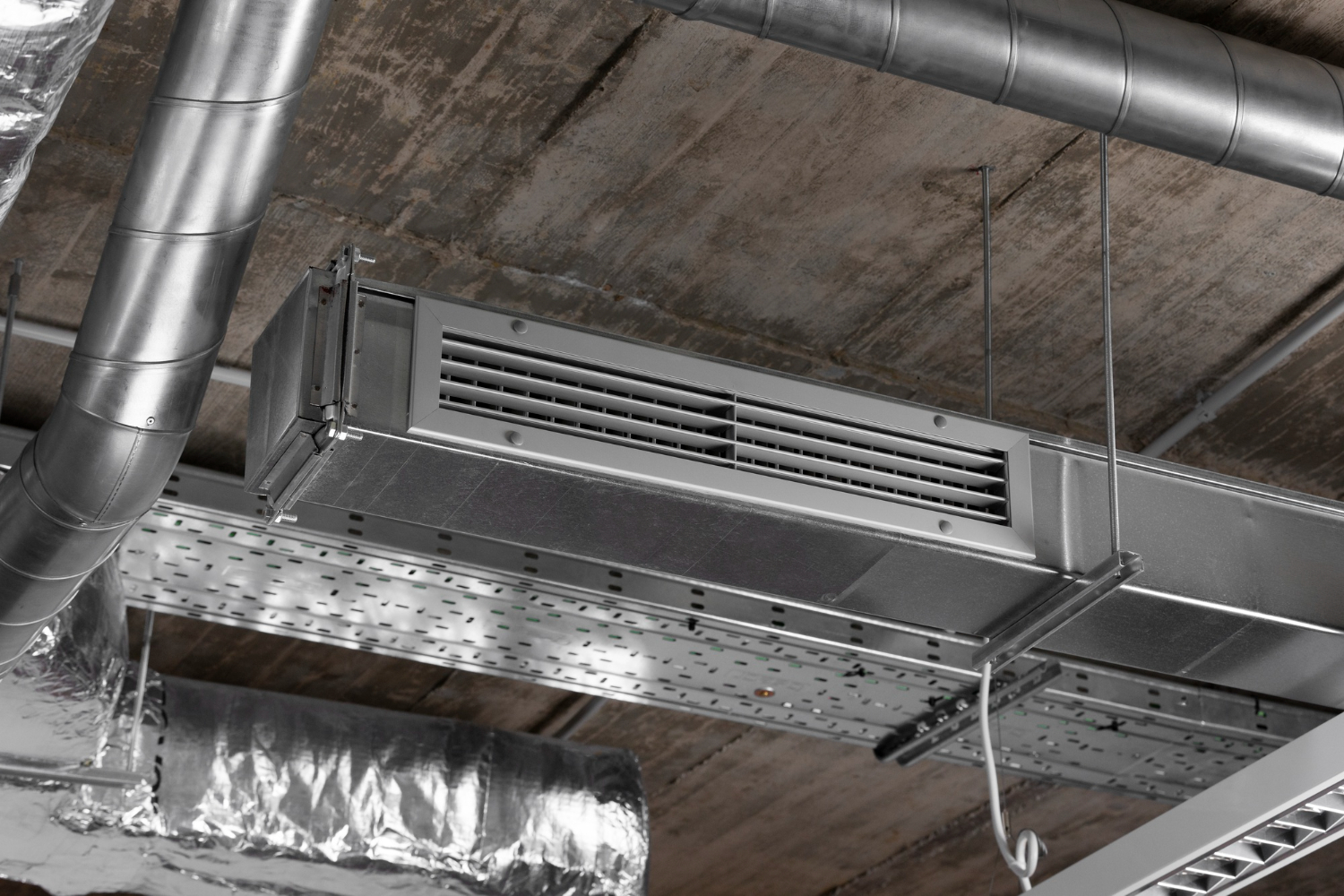The importance of proper ventilation in homes and buildings cannot be overstated, especially when considering the impact it has on indoor air quality and overall health. Kansas City residents spend a significant amount of time indoors, making it essential that the air they breathe is clean and free of pollutants. A well-ventilated building not only provides a comfortable living environment but also helps reduce the risk of various health concerns associated with poor air quality. We will explore the significance of adequate ventilation, its key components, and how our skilled professionals can assist in ensuring that your Kansas City home or building’s ventilation system is up to par.
I. Types of Ventilation Systems
1. Natural Ventilation
Natural ventilation relies on the inherent air pressure differences and air movement within a building to introduce fresh air and exhaust stale air. This method is common in older homes and buildings, which often have adequate air gaps, windows, and other openings that allow for air exchange. While natural ventilation can be effective, it often lacks the precise control provided by mechanical systems.
2. Mechanical Ventilation
Mechanical ventilation systems use fans, ducts, and other equipment to circulate air throughout a building actively. These systems can provide consistent and controlled airflow, helping to maintain ideal indoor air quality by venting pollutants and maintaining a proper balance of humidity.
3. Balanced Ventilation Systems
A balanced ventilation system combines the best of both natural and mechanical ventilation, utilizing features such as heat recovery ventilators (HRVs) and energy recovery ventilators (ERVs) to ensure optimal air exchange while minimizing energy loss.
II. Benefits of Proper Ventilation
1. Improved Indoor Air Quality
A well-ventilated building ensures that fresh air continually enters the space while stale, contaminated air is removed. This prevents the buildup of pollutants, allergens, and mold, resulting in cleaner, healthier air for all occupants.
2. Enhanced Comfort
Proper ventilation helps regulate indoor humidity levels and can eliminate unpleasant odors. Maintaining a comfortable environment is essential for the well-being of building occupants, contributing to overall satisfaction and productivity.
3. Mold Prevention and Structural Protection
By controlling humidity levels and reducing indoor condensation, proper ventilation can help prevent mold growth and its associated health risks. Additionally, reducing moisture buildup can help protect the structural integrity of the building and its contents, avoiding costly repairs and replacements.
III. Assessing and Optimizing Your Ventilation System
1. Airflow and Ventilation Rate Evaluation
Our professionals can assess your home or building’s current airflow and ventilation rates, determining whether they meet industry standards and recommendations for optimal indoor air quality. We will consider factors such as the building’s size, occupancy, and intended use to ensure proper ventilation.
2. System Inspection and Upgrades
An inspection of your existing ventilation system can identify areas where improvements may be necessary. Our technicians can recommend and implement upgrades such as installing more efficient fans, optimizing ductwork, or integrating an HRV or ERV system.
3. Ongoing Maintenance and Monitoring
Regular maintenance and monitoring of your ventilation system are essential to maintaining optimal performance and indoor air quality. Our experienced technicians can provide ongoing support, including routine inspections, cleaning, filter replacements, and any necessary adjustments or repairs.
IV. Considerations for Different Types of Buildings
1. Residential Ventilation
In homes, proper ventilation is essential to maintaining a comfortable and healthy living environment for occupants. Our technicians can help you determine the most effective ventilation solution for your Kansas City home, considering factors such as your local climate, the building’s layout, and the specific needs of your family members.
2. Commercial Ventilation
Commercial buildings often require more robust and complex ventilation systems due to their size, occupancy, and the presence of pollutant-generating activities. Improved indoor air quality in commercial spaces can lead to a healthier and more productive workforce. Our professional team will assess your commercial property’s unique requirements and design a tailored ventilation solution.
3. Ventilation in New Construction
When designing a new building, incorporating a proper ventilation system from the start is crucial. Our team can work with architects and builders to ensure that the new construction includes an efficient and effective ventilation system that meets the needs of future occupants.
Conclusion
Proper ventilation is critical in maintaining a healthy and comfortable atmosphere in your Kansas City home or building. By understanding the importance of ventilation and investing in a well-designed system, you can enjoy cleaner, fresher air and protect both the occupants and the structure of your property. Trust our experienced professionals at Delta T Heating and Cooling to assess, optimize, and maintain your ventilation system, ensuring a better living and working environment for everyone. Contact our HVAC contractor in Kansas City today to learn more about our comprehensive ventilation services and how we can help enhance your indoor air quality.



